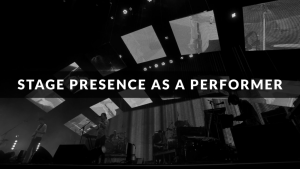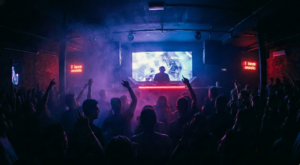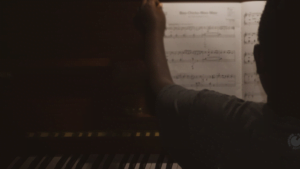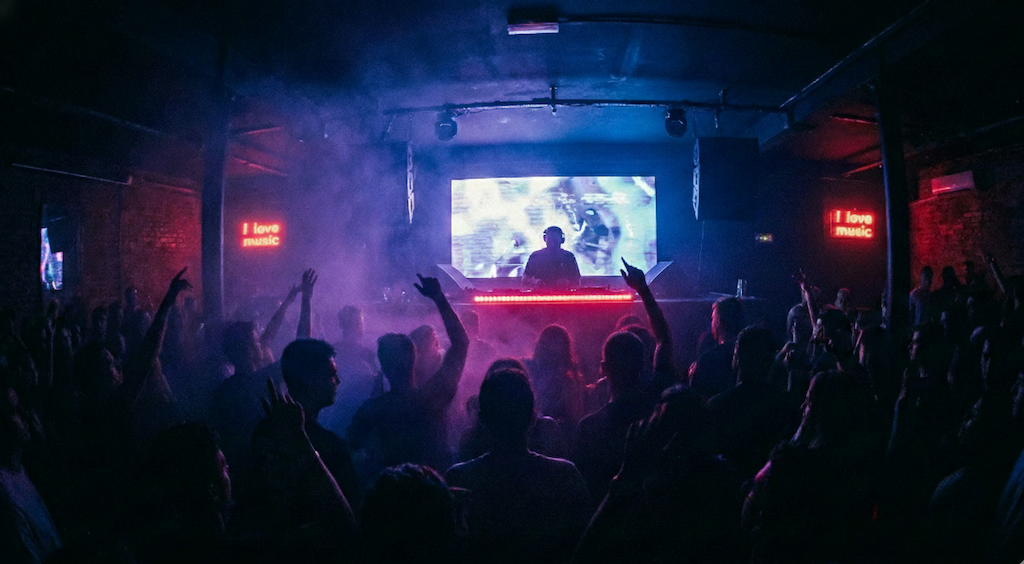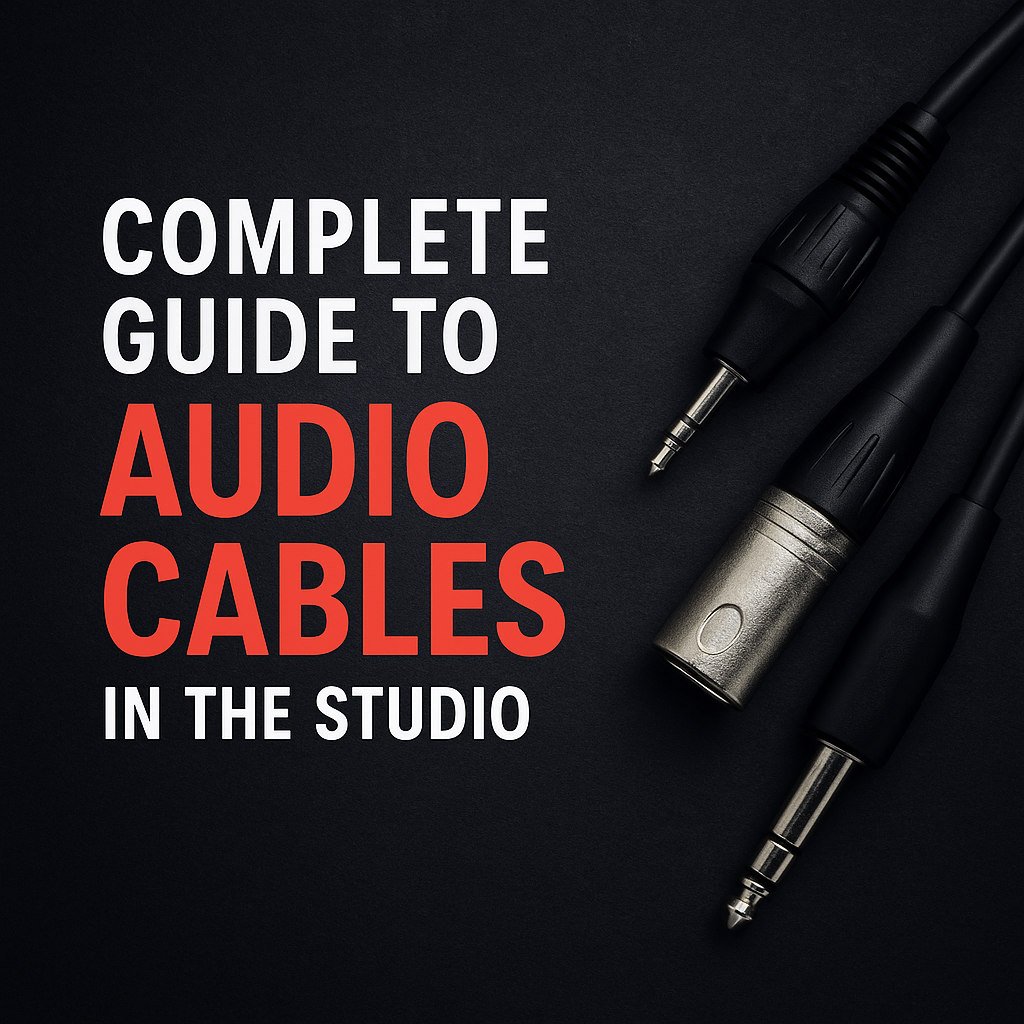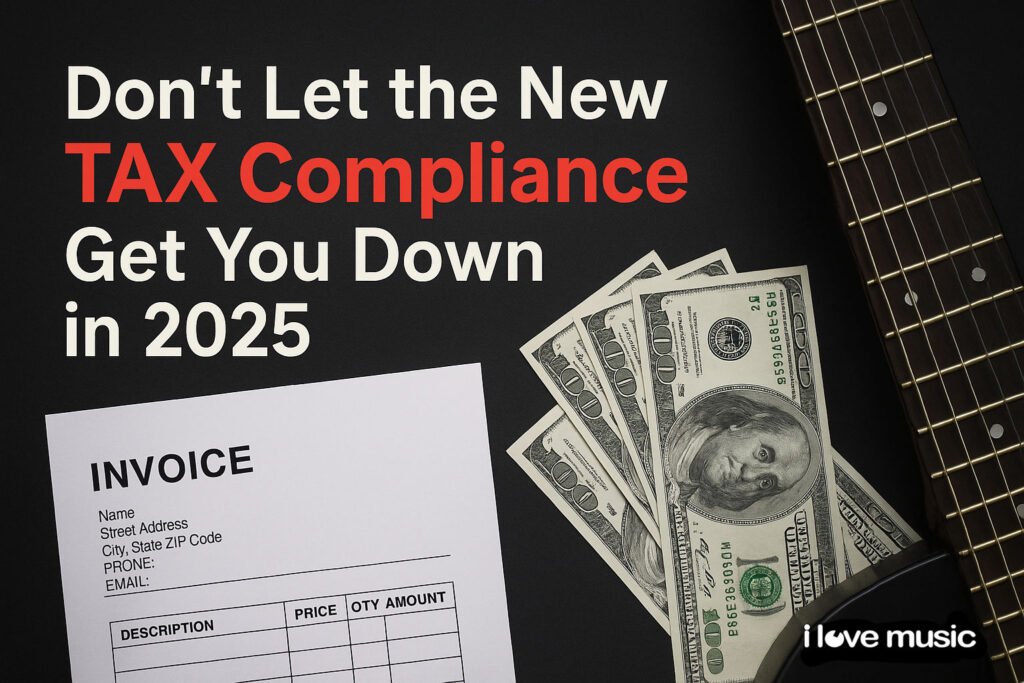Performance on stage can be as a DJ, Guitarist, Vocalist, Electronic performer, etc.
“The only performance that makes it, that makes it all the way is the one that achieves madness.”
― Mick Jagger
Don’t worry, you don’t actually have to achieve madness while performing. But it does help to have a strong stage presence. Every performer wants to be able to woo an audience. Performers that have a certain charm and charisma can draw an audience in, and fully command their attention.
The counter-argument to this is that stage presence isn’t everything; because if an artist is truly talented, their skill and expertise naturally shines through. However, when you throw in a healthy mix of hard work, talent and stage presence, you can elevate your performance to new heights. Making it a memorable experience for everyone involved.
So, how do you improve stage presence?
If you seem stiff or robotic while performing, an audience will find it hard to connect with your performance or believe in what you’re doing/saying. The more natural your movements and expressions, the more likely you are to captivate your audience. So essentially, good stage presence should involve some aspect of improvisation. You should ideally be able to gauge the energy of the room and work accordingly. You would not want to be too upbeat or overbearing at a casual afternoon gig or too sober and serious at a small, intimate gathering.
Here are a few tips and tricks to improve your stage presence quotient!

Enjoy yourself
If it’s your first time up on stage or if you lean towards being an introvert, then you are bound to be a bit nervous. Put on a smile and just try to have a bit of fun. Good vibes and good energy will immediately be picked up by your audience. Don’t be afraid to show the audience that you love what you do and you’re excited to be there.
Keep moving
It’s really awkward when a musician or an artist stays still during a set and doesn’t move around at all. Even if you’re just moving your arms or swaying to the music, you want an audience to also be encouraged to move and engage with you. You don’t have to be too over-the-top, but just try and express yourself as naturally as possible through your actions and encourage your audience to do the same. If possible, try and maintain eye contact with a few people in the audience.
Practice makes everything better
If you’re an artist, there’s no way around this. If you want to get good at performing in front of large crowds, you’re going to have to make no mistakes or be really good at camouflaging them. The most successful performers, however, are those who practice hard and perform with confidence. Do as many gigs as you can, and as you practice at rehearsals and then in front of audiences, you will eventually gain confidence and improve your stage presence.
Connect with your audience
This can be as simple as a smile or encouraging the audience to interact with you. You could introduce your set, tell an interesting anecdote or give your audience an insight into your performance. Remember that the whole idea of performance is to take your audience on a journey or just help them relax and have a good time.
Believe in yourself
There’s no magic formula for self-confidence. Artists are usually their own worst critics. If you believe in yourself and your art, you will be so much more comfortable and confident when performing in front of an audience. The more you step out of your comfort zone and push yourself to try new things and experiences, the more this will show in your stage presence and performance.
Study yourself
Study old videos of your performance to get a better idea of your weaknesses and strengths. Practising by yourself and performing for a live audience are very different experiences. Watching yourself on video will give you a clear idea of your areas of improvement.
Study your idols
Whom do you draw inspiration from? Who are the artists you admire? How do they perform in front of a live audience? Whether attending live concerts or watching your favourite artists on YouTube, learn about what works and what does not. Study your favourite artists and understand why you enjoy their performances. This could also help you improve your own performance when on stage.
It takes a lot of time and effort to create a polished performance that can withstand even the worst case of nerves. While no two performances will ever be the same, as an artist and a performer, you should be able to go with the flow and give it your absolute best.
Be yourself to the best of your abilities and give the audience the best parts of yourself. As you practice and do more gigs, you will eventually find your own unique style of performing.

About the Author: Rochelle D'Silva Rochelle is an author, poet and the former editor of the I Love Music Academy Blog. She is a passionate writer and performer.




